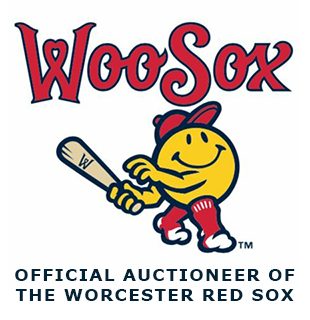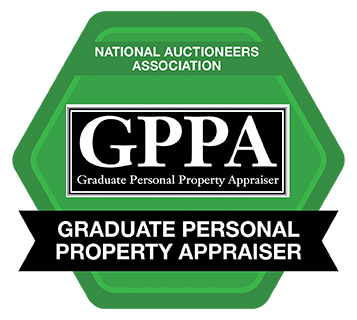There are many commonalities that we encounter when we handle an estate, but every situation has factors that are unique. After selling the contents of hundreds of estates, we’ve seen several elements that can guarantee good results for any auction or estate sale.
One of the first questions that we ask a perspective client is whether there are any antiques in the home. Rare antiques or a valuable collection of some kind can yield a considerable sum. We also determine whether our clients are looking to sell the contents of an entire estate or rather are going through a transition period and downsizing as they move to new living arrangements.
If the items have a connection to a famous person or place, they may have more value. We’ve sold Eliot Ness’s credentials and letters written by Teddy Roosevelt that generated a great deal of interest and sold well. Items that belong or belonged to a popular person on the local level can also be desirable. We often have local buyers purchase something because they had a connection with the person whose estate we are handling. They want to buy something that person owned as a remembrance.
Other factors that come into play are the family’s wealth and history. Wealthy families often bought finer things. With more disposable income, they may have been better able to purchase fine art, Sterling silver and gold jewelry. A family that has roots dating back prior to the Revolutionary War may very well have antiques that have been passed down for generations.
An auctioneer always loves to see a great collection, but of course, some collections are better than others. The items that are the most collectible are often the ones that weren’t meant to be collected. Collector plates, beanie babies and many other collectibles may temporarily rise in value but, eventually, they tend to drop in price. 1960’s and earlier sports cards and comic books tend to increase in value because so many of them were thrown away. Collectors are often advised to collect what they like and not to be concerned about future values. Many collections contain a mixture of items that may contain some valuable original items and some reproductions worth considerably less.
Another thing to consider is that there are always fluctuations in the antique market. Tastes change and some furniture from throughout the 1800’s may drop in value while some 1950’s and 60’s modern design pieces climb.
Lastly, location is an important factor with an estate. We have to consider what will work best for our clients when we handle an estate. We’ve sold items from penthouses in Boston. Parking was the major consideration and the only option was to remove the items and transport them to auction. In another case, we were asked to sell the contents of a beautiful Wellesley home. There was plenty of parking and many fine pieces with a few antiques. We ran an estate sale that received a high volume of serious buyers. Another situation was very similar but was in a rural area. We opted for a timed online estate auction with a preview at the home prior to the auction. This allowed others outside the area to bid along with local buyers. Different approaches were required to maximize results.
An ideal estate would be the contents of a home that had been occupied by wealthy descendants of the Mayflower who continued to buy well crafted pieces while never throwing anything away. Until I run across this fantasy home, we will continue to help executors, attorneys and people looking to sell a few better quality pieces to get the most for their possessions.
If you have any questions about antique auctions and estate sales, call Wayne Tuiskula, Auctioneer/Appraiser at 508-612-6111 or email us today.
Our articles are published in the Webster Times, Spencer New Leader, Auburn News, Blackstone Valley Tribune, Charlton Villager, Killingly Villager, Putnam Villager, Sturbridge Villager, Thompson Villager and Woodstock Villager.





